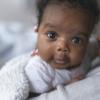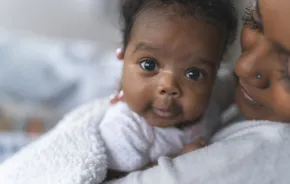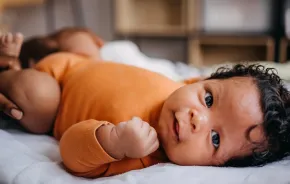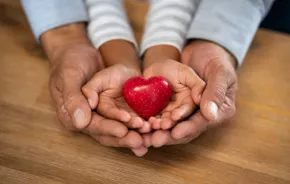Sometimes it seems that there's no end to hyper-parenting. Who hasn't
had enough of the flash cards, the "Baby Genius" DVDs and the "Numbers
are Your Friends" software? What's next, foreign language lessons for
infants?
Well, yes. Spanish, French, Mandarin and Japanese -- you name it --
these languages and others are popping up more and more in schools,
courses and enrichment activities targeting very young children.
Turns out there are genuine benefits to early (really early) foreign
language exposure. According to the latest studies, babies and young
children learn language differently -- and better -- than adults do.
That's something most of us suspected in 10th-grade French, when
conjugating verbs in the pluperfect tense didn't make much sense and --
let's be honest -- still doesn't.
But now we have the science to back it all up and, along with that,
intriguing new enterprises that hope to capitalize on the hottest
findings in language acquisition.
Blame it all on Patricia Kuhl, Ph.D. Co-director of The Institute for
Learning and Brain Sciences at the University of Washington, Kuhl is
known worldwide for her research on language development and the way
early experience alters the brain.
Kuhl discovered that infants are able to distinguish among sounds used
in all languages. But early in their development -- around 6 months of
age -- their abilities to discriminate foreign language sounds decline
sharply. That's because they begin to concentrate on learning their
native language sounds, she says.
"There's more sensitivity to language early on," explains Barbara T.
Conboy, a postdoctoral research associate who works with Kuhl. "The
gradual loss of that could be due to learning the first language;
babies start to tune out things that are not relevant to that language."
UW researchers also found that infants learn foreign language best by
social interaction. In other words, watching an educational DVD or
listening to an audiotape in Spanish or Cantonese doesn't really work:
human contact does.
Jackie Friedman Mighdoll took notice of those findings and launched her
business, Sponge, based largely on Kuhl's studies. Sponge language
center in Seattle (www.spongeschool.com) teaches Spanish, French,
Mandarin or Japanese to kids ages birth to 5, incorporating games,
songs, stories, music and movement in each 55-minute class. Teachers --
all native speakers of their language -- speak that language only
during first 45 minutes of each session.
"Our focus is making sure children are exposed to both the language and
culture," says Mighdoll, a Seattle resident. "It takes time to become a
proficient bilingual speaker in any language. But this is a great way
to start."
Does learning a second language confuse babies and toddlers who are in
the midst honing their speech skills in their native tongue?
Not really, Mighdoll says. "Kids are smarter than we are in figuring
out language," she explains. "Think about how many words your child
learns for cat: kitty, meow, Sam across the street. They figure out how
to use these words and in what context."
The Seattle School District launched its first language immersion
program in 2000 at John Stanford International School, where
kindergarten and first-grade children spend half of each school day
learning math and science in Spanish or Japanese.
In the Bellevue School District, students can begin kindergarten or
first grade at Puesta del Sol Elementary and be taught almost
completely in Spanish. And the Northshore School District offers the
"Dual Language Program" in Spanish and English.
Maybe you'd prefer your toddler learn German? Then the Seattle Area
German American School (SAGA) is for you. SAGA began in Issaquah last
fall for preschoolers, but will add grades as students move up. A
second Seattle location will be offered in August.
Francophiles might want to check out the French Immersion School of
Washington in Bellevue or the French American School of Puget Sound on
Mercer Island. Students at these schools study subjects such as math,
science and social studies, all in Francaise. Both schools begin at the
pre-kindergarten level; at the French Immersion School, the youngest
students are 21/2.
Applications to the French Immersion School increase every year, says
Veronique Dussud, head of the school. "Parents these days realize that
a child will have to know two languages perfectly to be able to
function in society," she notes. "We also find they pick up other
languages much more easily later on."
Seattle parent Molly Hanlon wants her kids to learn another language
and doesn't really care which one. Right now, Audra, age 2, and Teddy,
6 months, are learning Japanese at Sponge.
"I have no expectations they'll come out fluent -- but I hope they
acquire an appreciation for other languages and cultures," Hanlon says.
Linda Morgan writes frequently on education issues for ParentMap.









